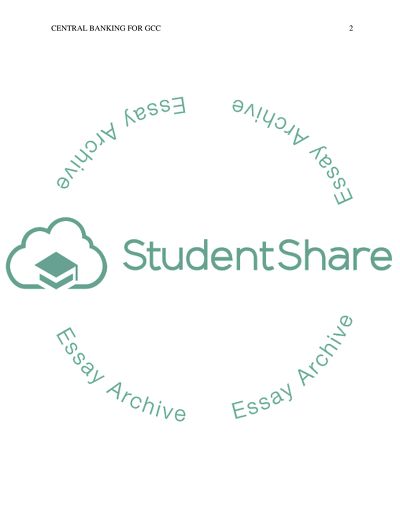Cite this document
(“A.How should be the structure of the suggested Central Bank for GCC Assignment”, n.d.)
A.How should be the structure of the suggested Central Bank for GCC Assignment. Retrieved from https://studentshare.org/macro-microeconomics/1667983-ahow-should-be-the-structure-of-the-suggested-central-bank-for-gcc-bhow-might-this-bank-be-similar-or-different-from-the-european-central-bank-cwhat-are-the-arguments-for-and-against-the-gcc-central-bank
A.How should be the structure of the suggested Central Bank for GCC Assignment. Retrieved from https://studentshare.org/macro-microeconomics/1667983-ahow-should-be-the-structure-of-the-suggested-central-bank-for-gcc-bhow-might-this-bank-be-similar-or-different-from-the-european-central-bank-cwhat-are-the-arguments-for-and-against-the-gcc-central-bank
(A.How Should Be the Structure of the Suggested Central Bank for GCC Assignment)
A.How Should Be the Structure of the Suggested Central Bank for GCC Assignment. https://studentshare.org/macro-microeconomics/1667983-ahow-should-be-the-structure-of-the-suggested-central-bank-for-gcc-bhow-might-this-bank-be-similar-or-different-from-the-european-central-bank-cwhat-are-the-arguments-for-and-against-the-gcc-central-bank.
A.How Should Be the Structure of the Suggested Central Bank for GCC Assignment. https://studentshare.org/macro-microeconomics/1667983-ahow-should-be-the-structure-of-the-suggested-central-bank-for-gcc-bhow-might-this-bank-be-similar-or-different-from-the-european-central-bank-cwhat-are-the-arguments-for-and-against-the-gcc-central-bank.
“A.How Should Be the Structure of the Suggested Central Bank for GCC Assignment”, n.d. https://studentshare.org/macro-microeconomics/1667983-ahow-should-be-the-structure-of-the-suggested-central-bank-for-gcc-bhow-might-this-bank-be-similar-or-different-from-the-european-central-bank-cwhat-are-the-arguments-for-and-against-the-gcc-central-bank.


